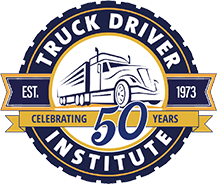What Is an Owner Operator? Self Employed Truck Driver Questions Answered
Before taking the plunge into starting a business, you should ask yourself “what is an owner operator?” With hundreds of employed truckers all over the USA contemplating leaving the big carrier companies they work for in order to go it alone, a lot of experienced truck drivers are curious about the life of the self-employed driver. Before making the transition, truckers are looking to understand the realities, and asking what is an owner operator?
 An owner operator is a truck driver who owns and operates their own rig. There is no carrier company to support you and you must make your own schedules and connections. Essentially, you are creating your own business. Although from the outside, the day-to-day can look very similar, whether you’re working for a company or generating your own business. However, there are multiple distinctions that make for a very different experience, as everything from taxes to maintenance, time away from home and fuel costs are radically different depending on whether you’ve embraced the owner-operator model or you’re working for somebody else. In order to equip yourself with the information you need to make an informed decision, discover below the primary differences between the two ways of working, and understand clearly what is an owner operator.
An owner operator is a truck driver who owns and operates their own rig. There is no carrier company to support you and you must make your own schedules and connections. Essentially, you are creating your own business. Although from the outside, the day-to-day can look very similar, whether you’re working for a company or generating your own business. However, there are multiple distinctions that make for a very different experience, as everything from taxes to maintenance, time away from home and fuel costs are radically different depending on whether you’ve embraced the owner-operator model or you’re working for somebody else. In order to equip yourself with the information you need to make an informed decision, discover below the primary differences between the two ways of working, and understand clearly what is an owner operator.
What Is an Owner Operator: Explained
Although the term is bandied about frequently these days, a lot of experienced truck drivers and newcomers to the industry alike have questions about how the owner-operator model works in reality. Sure, either way, you’ll be spending your days on the road, delivering the goods that power America, but what additional perks and responsibilities can an owner-operator expect compared to the employed driver?
When you are an owner operator, you buy or lease your own rig and use that to make all of your deliveries. You are entirely responsible for all the maintenance and fees the truck requires. The truck is your business and you have to keep it in top shape in order to keep your company running smoothly. To some extent, the question of self-employment versus working for somebody else is the same as in all other industries, but when it comes to owning and driving your own truck, there are some hidden requirements. It is essential that you research the realities comprehensively before you make a decision.
What Is an Owner Operator and What Are the Associated Costs
As well as being treated as a business, rather than an employed individual, owner-operator truck drivers can expect a series of taxes and charges. If you’re an employee, your carrier company will likely cover these costs, but going it alone will mean filing and preparing the appropriate paperwork. If you drive a vehicle weighing 55,000 pounds or more, you’ll have to pay the Heavy Vehicle Use Tax, using IRS form 2290. Rather than a flat fee, the tax is levied at a base cost for the first 55,000 lb of weight, and an additional $22 for every 1,000 over that mark, up to a cap of 75,000 lb. The only exception is if you drive your truck less than 5,000 miles a year.
You should also familiarize yourself with the International Fuel Agreement rules. While it isn’t a tax so much as a registration charge, you can also expect to fork out $300 every year for a United States Department of Transport number, particularly if your business model involves hauling hazardous materials or regulated chemicals. With the various costs and charges, it is definitely worth enrolling in an expert program that can take you through the ins and outs of the trucking business, rather than just the physicalities of driving a big rig.
In addition to taxes, you’ll also have to pay insurance for your truck. If you choose to lease to a carrier this will likely be covered. If you choose to buy a rig and run your own services you’ll have to cover the costs of insurance. Be sure to thoroughly research the different types of coverage you’ll need when purchasing your insurance as well.
Generating Business As Your Own Boss
While there is an undeniable appeal to leaving behind certain aspects of employment and becoming your own manager, the flipside is the immediate financial pressure to generate your own income with truck driving contracts. Although owner-operators will be escaping the dispatcher back at headquarters, and picking routes and jobs which suit them, drivers considering the self-employed lifestyle shouldn’t underestimate the realities of generating their own business.
Truck driving is a capital-intensive business, and to some extent employees who drive their employers’ trucks are insulated from the high costs. As well as purchasing or leasing your own rig, you can expect to meet fuel costs, which are often fluctuating, and any maintenance or repair cost, as well as paying hefty insurance premiums to keep your truck on the road. While there are many advantages to being your own boss it also takes a lot of self-discipline. You have to deal with the balance of being flexible while maintaining your responsibilities.
However, the entire burden does not have to fall on your shoulders. If you choose to lease your truck to a carrier company you absolve yourself of having to look for jobs and takes care of some of the costs associated with being an owner operator. While you will be able to make more money as an owner operator, do consider the fact that some of the money you make will have to go back into your truck and your business.
But First Get Your CDL With TDI
Whether your first foray into the world of commercial truck driving will be as a self-employed driver or as an owner operator, your first step to getting on the road is a Class A CDL. Since its founding in 1973, the Truck Driving Institute has trained tens of thousands of drivers, who now work as highly qualified and well paid licensed truck drivers all over the USA, both employed by TDI’s multiple carrier partners or working for themselves. If the owner-operator life could work for you, pick up the phone now or swing by one of the eleven locations today.
Get Started
Get your Class A CDL in our friendly, supportive CDL training program. TRAIN with experienced instructors – multiple good-paying, secure job choices with benefits available for eligible graduates. EARN $700 – $1000+ / week to start as a truck driver. Get started today by filling out the form below. We look forward to hearing from you!



